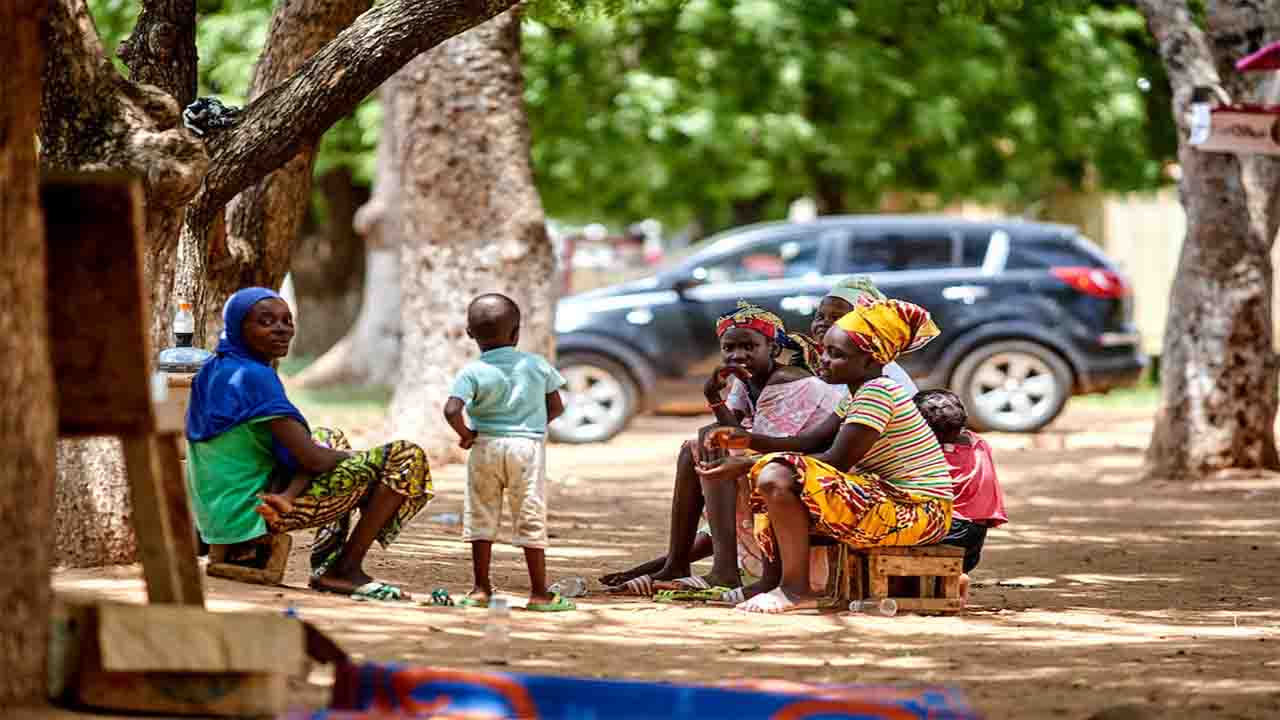Africa (Commonwealth) _ If the results of the US elections in November trigger a drastic change in the course of the world’s largest economy’s economic strategy toward Africa, investors may exhale with relief.
Speaking on Wednesday at the 2024 Investing in African Mining Indaba in Cape Town, former US special envoy for the Sahel and the Great Lakes, J Peter Pham, made this claim. Since the conclusion of the Cold War, Africa has been the one area of US foreign policy that has really had wide bipartisan support all throughout administrations, both Democratic and Republican.
According to him, 90% of the House or Senate votes in favor of legislation pertaining to Africa, with the possible exception of one or two drowsy or ignorant persons.
In a highly anticipated race for reelection, incumbent President Joe Biden is anticipated to face off against Republican front-runner and former President Donald Trump in November when Americans head to the polls.
The Trump administration’s “America first” strategy sparked concerns that the greatest economy in the world might overlook its economic connections to Africa. The Biden administration’s Inflation Reduction Act, meantime, aims to increase local American employment by reversing the labor exportation of workers to less expensive markets abroad.
Republicans and Democrats in South Africa are calling for the nation to be excluded from the African Growth and Opportunity Act (Agoa) due to its close ties to Russia during the country’s current military assault in Ukraine.
According to Pham, although the two parties may emphasize various aspects of the US’s connection with Africa, both Democrats and Republicans typically favor large-scale initiatives.
I anticipate that the two or three decades of continuity will continue. In essence, the policy will not change. Not because we have high hopes. Though it is in our best interests, that is why we would like to be. He remarked that investing in Africa is also in the interest of our country.
Pham stated that despite having geological resources, the US found it difficult to mine on its own soil and hence needed to diversify its supply chains. Paul Kabuswe, the minister of mines and minerals for Zambia, stated that Africa has to make sure its countries work well together throughout the global energy transition.
He said that the majority of valuable minerals, if not all of them, are undiscovered on the African continent. Critical minerals, which are necessary for industry, renewable energy, and technology, are abundant in Africa. Moving past simple extraction and toward adding value, generating employment, and promoting development is becoming increasingly important, according to Kabuswe.
According to Musa Mabuza, CEO of the Council for Geoscience, African countries must have the capacity to discover its mineral wealth and to extract and sell them for the continent’s main advantage.
African-American collaboration spurred by observable changes in the world. Realizing the significance of Africa to U.S. global priorities—including the continent’s fast expanding population, its position as one of the world’s major trading blocs, its substantial endowment in natural resources, and its sizeable voting bloc in the UN—is one driving force.
The United States’ stance for the great power struggle over influence in Africa with China and Russia provides another justification. In relation to certain African nations’ nonaligned posture at the UN, the paper lists Chinese “detrimental activities” with Russia’s use of “disinformation… to undercut Africans’ principled opposition to Russia’s further invasion of Ukraine.” The United States and its allies pledge “high standards, driven by values and transparent” programs in opposition to these actions.
In addition to having a short budget, the fiscus is under increasing pressure to solve social problems.
Mabuza stated that wealthy nations had an obligation to invest in “the fundamental building blocks” of the continent and that Africa deserved and required a recalibration of its economic ties with the global north.
The plan delineates four overarching strategic objectives, encompassing post-pandemic economic recovery and climate adaptation initiatives in addition to the enduring objectives of open government, democracy, and security interests. In order to accomplish these goals, the partnership will concentrate on stepped-up initiatives and fresh tools to reset the U.S.-African connection by leveraging the private sector, rebalancing toward urban hubs, and involving and supporting America’s African diaspora.








